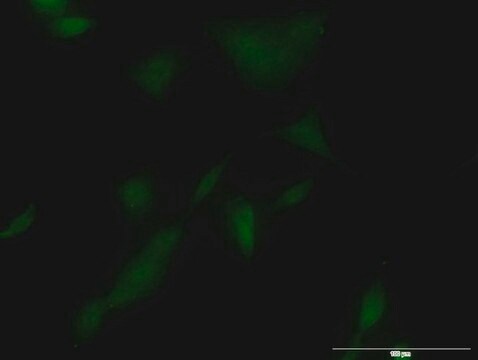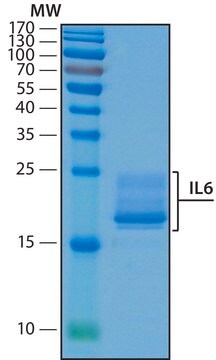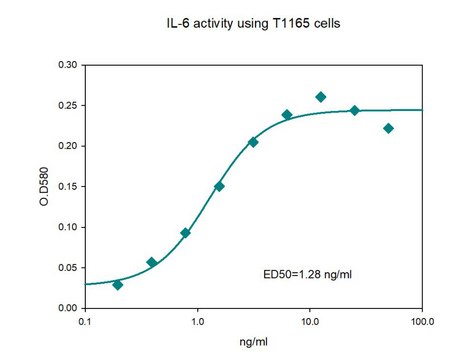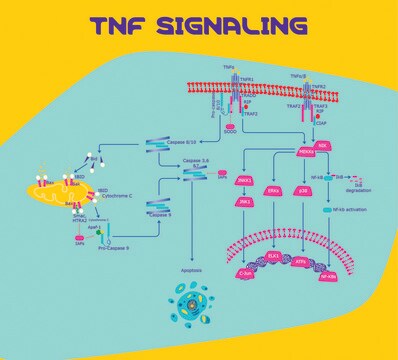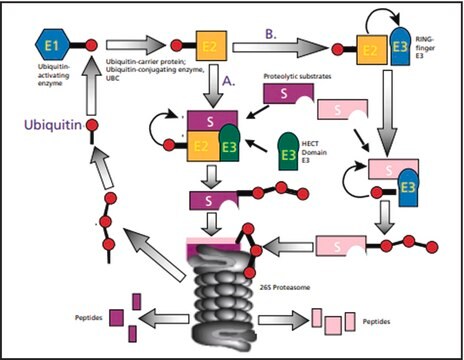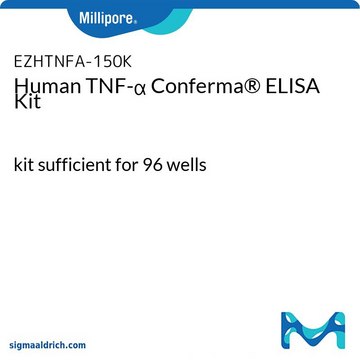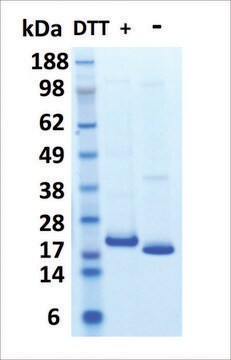U6135
Ubiquitin-Specific Protease 8 human
recombinant, expressed in Sf9 cells, ≥70% (SDS-PAGE)
Sign Into View Organizational & Contract Pricing
All Photos(1)
About This Item
UNSPSC Code:
12352204
NACRES:
NA.77
Recommended Products
General description
Human USP8 (Ubiquitin-Specific Protease 8) or UBPY, amino-acids 2-1118 (end) with an N-terminal FLAG-tag, expressed in a baculovirus-infected Sf9 cell expression system.
Application
Useful for the study of enzyme kinetics, screening inhibitors, and selectivity profiling.
Biochem/physiol Actions
Expression of ubiquitin-specific protease 8 (USP8) in mice is critical for proper expression and stability of several growth factor receptors including epidermal growth factor receptor. However, USP8 was shown to degrade chemokine receptor 4.
Physical form
Solution in 45 mM Tris-HCl, 124 mM NaCl, 2.4 mM KCl, 90 ng/μl Flag peptide, 3 mM DTT, and 20% Glycerol at pH 8.0.
Storage Class
10 - Combustible liquids
wgk_germany
WGK 1
flash_point_f
Not applicable
flash_point_c
Not applicable
Choose from one of the most recent versions:
Certificates of Analysis (COA)
Lot/Batch Number
Don't see the Right Version?
If you require a particular version, you can look up a specific certificate by the Lot or Batch number.
Already Own This Product?
Find documentation for the products that you have recently purchased in the Document Library.
The Deubiquitinating Enzyme USP8 Promotes Trafficking and Degradation of the Chemokine Receptor 4 at the Sorting Endosome
Berlin, I.
The Journal of Biological Chemistry, 285, 37895?37908-37895?37908 (2006)
Sandra Niendorf et al.
Molecular and cellular biology, 27(13), 5029-5039 (2007-04-25)
Posttranslational modification by ubiquitin controls multiple cellular functions and is counteracted by the activities of deubiquitinating enzymes. UBPy (USP8) is a growth-regulated ubiquitin isopeptidase that interacts with the HRS-STAM complex. Using Cre-loxP-mediated gene targeting in mice, we show that lack
Emi Mizuno et al.
Molecular biology of the cell, 16(11), 5163-5174 (2005-08-27)
Ligand-activated receptor tyrosine kinases undergo endocytosis and are transported via endosomes to lysosomes for degradation. This "receptor down-regulation" process is crucial to terminate the cell proliferation signals produced by activated receptors. During the process, ubiquitination of the receptors serves as
Essential Role of Ubiquitin-Specific Protease 8 for Receptor Tyrosine Kinase Stability and Endocytic Trafficking In Vivo
Niendorf, S., et al.
Molecular and Cellular Biology, 727, 5029-5039 (2007)
S Naviglio et al.
The EMBO journal, 17(12), 3241-3250 (1998-06-17)
The ubiquitin pathway has been implicated in the regulation of the abundance of proteins that control cell growth and proliferation. We have identified and characterized a novel human ubiquitin isopeptidase, UBPY, which both as a recombinant protein and upon immunoprecipitation
Our team of scientists has experience in all areas of research including Life Science, Material Science, Chemical Synthesis, Chromatography, Analytical and many others.
Contact Technical Service